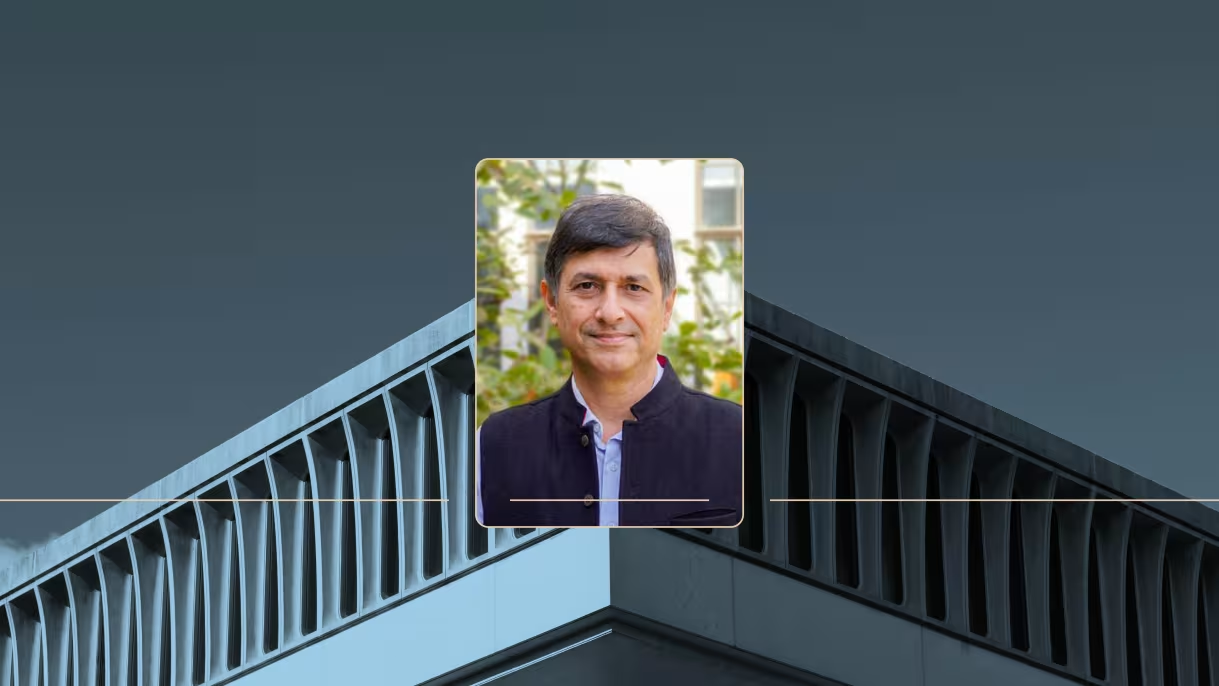
From the window in Navroz Dubash’s office on the fourth floor of Robertson Hall, there is a clear view of the eating club he frequented as an undergrad at the Princeton School of Public and International Affairs. Dubash returned to Princeton SPIA this past fall as a professor of public and international affairs and the High Meadows Environmental Institute.
In between, Dubash obtained a master’s degree and doctorate in energy and resources from the University of California, Berkeley, and spent many years working on climate change policy in New Delhi. Early in his career, he helped establish the global Climate Action Network as its first international coordinator. He wrote two books and edited 10 collections, serves as co-editor-in-chief of Climate Policy, and published widely in leading journals. An active researcher and policy advisor, Dubash is excited to return to Princeton.
Here’s what he will be doing, in his own words:
My research explores… the value proposition for developing countries in addressing climate change. Right now, we don't have one. The message from developing countries is: “We know climate change is coming and there are going to be impacts, so maybe the best thing to do is to grow as much as possible. We didn't cause this problem, so why should we distract ourselves from the task of development?
So what is the approach the developing world could most productively take to climate change that also meets their development objectives? I think that we are in a more hopeful place now, because there's a possibility of getting low-carbon energy at a cheaper cost than fossil fuels. The question is, how fast can developing countries pivot to that? And how much support do they need in making that transition? It's a bit of a race against time.
Princeton SPIA is interesting to me… because I've been working at the interface of academia and policy for a long time. For a lot of academics who come to Princeton SPIA, this is a way of stepping into the policy space a bit more. For me, it's perhaps the other way around, in the sense that I hope to step back from the rush of short-term issues and debates to think more fundamentally about the bigger questions around climate change, air pollution, and energy transition.
There’s a lot to learn from the political science literature on how to build state capacity, how to make states more effective, and how to make them more democratically accountable.
People who work on climate change think that they're discovering things about state capacity for the first time, but there's a huge literature on the state in the developing world, written by political scientists who are working on the Global South. If you're going to address climate change, you're layering this giant problem on top of already overstretched states.
There's also a long tradition of development writers and scholars who are not engaged in climate change, so I think there's scope to bring these communities together.
At Princeton SPIA, I hope to… bring in many more voices and convene a lot more people from South Asia and Africa. The next frontier for this conversation is really Africa, which hopefully will start growing much more rapidly. If it does, it has to be in a low-carbon direction. Otherwise, it's going to be impossible to address climate change.
If I weren’t in academia, I would… possibly have worked more on development issues as an activist. A lot of my career has been putting one foot in front of the other. I started out as a climate and development activist, and it would have been quite feasible for me to just continue down that path.
The person most influential in my life has been… my mom and her example of being able to connect with people and listen to people in a way that made them feel heard. As academics or policy wonks, we tend to get abstract so fast and so removed from the lived experiences of people. One of my formative experiences was doing fieldwork for my Ph.D., when I lived in a village in India. What I've taken from my mom is the idea that ultimately, there are people behind all of this.
On a Saturday night, you’ll most likely find me… cooking East Asian food for our clutch of Italian friends in Washington, D.C., and introducing them to the charms of Bollywood.
My secret talent is… not much of a talent, but a pleasure — woodworking and restoring old furniture. It’s about doing something with your hands, where you see the result in a matter of days or weeks rather than over decades. If you work on climate change, you must have something that brings you forward in time.

